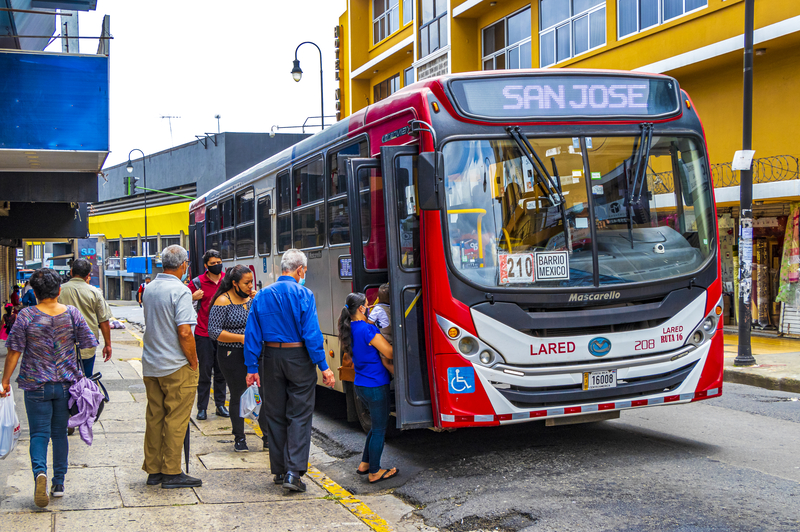Electric Buses in Regular Routes: Still a Far Cry in Costa Rica
The potential of electric buses operating on regular routes in Costa Rica appears remote, according to conclusions reached by state authorities and entrepreneurs at a forum on public transport modernization in the post-pandemic era. The forum, organized by the National Chamber of Transport (Canatrans), highlighted challenges including legislative clarity, a concrete change model, and high vehicle costs.
Past Experiences and Current Challenges
The only instance of these non-polluting vehicles in operation was in February 2021, when a pilot plan involving three electric buses donated by the German Ministry of Environment was launched. Despite the successful trial, there was no progress towards a business model capable of gradually introducing this technology.
José Poltronieri, operations director of the Desamparados Auto Transport Group (ATD), noted that companies alone cannot bear the high investment implied by opting for electric buses, in addition to their impact on fares. As an example, 10 electric buses currently cost about $3 million, which would translate to a significant increase in user fares and deter carriers from purchasing them.
The Role of Government and Regulatory Bodies
Édward Araya Rodríguez, Transportation Superintendent of the Public Services Regulatory Authority (Aresep), emphasized the need for the Ministry of Public Works and Transport (MOPT) to issue a modernization directive for public transport to boost the implementation of this technology and overcome current financial and operational obstacles.
Araya warned that without a clear modernization design and business model, it is impossible to transition to electric buses on regular routes. He also mentioned a study conducted by the entity in 2018 in collaboration with the World Bank and Deloitte Spain to assess the tariff costs of introducing these vehicles.
In the country, almost two million people use the bus service daily.
Infrastructure and Financing Challenges
Another key aspect, according to Deputy Minister of Energy, Ronny Rodríguez Chaves, is ensuring the deployment of charging centers for electric buses before their implementation on regular routes. He suggested public-private partnerships to build a network of charging centers but stressed the importance of defining how these centers would be used, establishing clear regulations, and determining how they would operate in conjunction with the route concessionaires responsible for these facilities.
Rodríguez also identified the lack of climate financing to subsidize the purchase of these vehicles and the construction of charging centers as a hurdle. This lack of funding has been a pending issue since the pilot plan with the German buses.
Legal Reforms and Stakeholder Interest
However, before all else, it is necessary to reform “outdated laws,” warned Eric Bogantes Cabezas, general regulator of public services. He stated that regulatory changes are necessary to provide an appropriate legal framework and give legal certainty to the private sector interested in participating (bus operators or other companies, he indicated).
The Costa Rican Institute of Electricity (ICE) and the Caribbean Group company have been operating the three donated electric buses for transport between Liberia and the Daniel Oduber Quirós airport in Guanacaste since November 2022.
ICE intends to assess the performance of these units as part of its process to find a viable business model, based on leasing electric units to bus operators to introduce non-polluting technology in Costa Rica.

